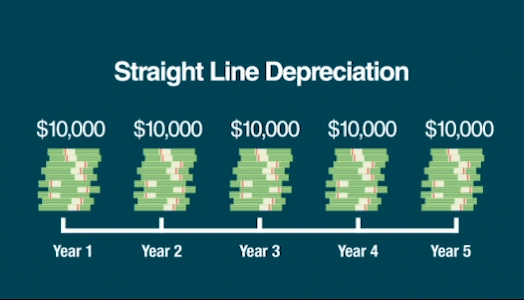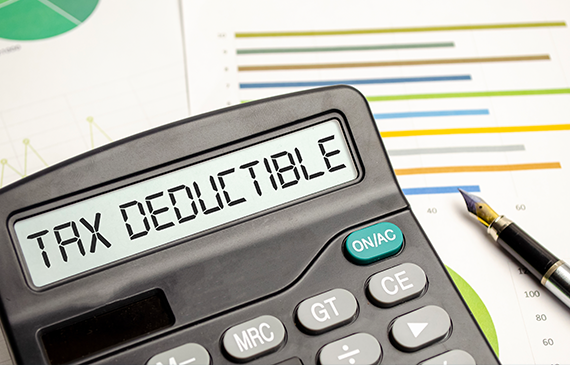Tax ramifications of different expenses are a significant factor in determining financial strategies in the ever-changing world of business. Equipment lease payments is one topic that frequently draws the attention of business owners.
Be sure to consult a tax professional before leasing equipment
Remember: Be sure to consult your CPA or tax advisor to discuss whether your equipment is eligible for tax savings.
Understanding the present tax environment and the regulations governing the deductibility of equipment leasing payments is crucial for businesses in 2024. This article will examine the guidelines, factors, and possible changes that could affect businesses this year as it explores this problem's details.
In this article…
- Understanding Equipment Lease Payments
- Two Lease Types That Can Reduce Income Taxes
- Are Equipment Lease Payments Tax Deductible
- Tax Deductibility Criteria
- Potential Changes in 2024
- How Can You Get Started with Leasing Equipment?
Understanding Equipment Lease Payments
It's critical to comprehend the terms of equipment lease payments before exploring the tax consequences.
Businesses frequently lease equipment rather than buy it entirely – this is known as equipment leasing. Companies can acquire needed equipment through this arrangement without paying the initial price of buying it outright. Periodic payments are commonly associated with leasing agreements and might last a few months to several years.
What are the tax benefits of leasing equipment?*
* Be sure to talk to your tax advisor to determine the tax ramifications of acquiring equipment for your business.
Here are some tax benefits of leasing equipment:
- A decrease in taxable earnings. Generally speaking, lease payments are deductible from taxes.
- Higher deductions for depreciation. Leasing allows you to take advantage of the extra depreciation tax benefits on the equipment expenses in the year of purchase, which is not available if you buy the equipment outright.
Two Lease Types That Can Reduce Income Taxes
Capital Lease
A capital lease is a contract that conveys a purchase of an asset. For accounting purposes, a capital lease is treated as if it were actually owned by the lessee and is recorded on the balance sheet as such.
Thus, you can claim depreciation for the duration of a fixed asset's functioning life if you obtain a capital lease. To maximize your capital lease deductions through Section 179, consult your tax professional as soon as possible to expedite the process.
Section 179 eliminates the need to spread the purchase price over several years by allowing you to write off the initial purchase price in the same tax year as your purchase.

Be sure to consult a tax professional before leasing equipment
Remember: If you have a capital lease, be sure to consult your CPA or tax advisor about accelerating your tax deduction with Section 179.
Operating Lease
An operating lease refers to a contract that makes it possible for a business owner to use an asset without ownership rights. Many businesses can use fixed assets more easily without worrying about expensive upfront purchases, thanks to operating leases.
Each party to an operating lease has a set of duties mutually understood and outlined in the lease agreement. Generally, the lessee must maintain the leased item and ensure it is free from wear and tear and in appropriate condition.
Businesses obtain authorization to use a fixed asset under a finance leasing contract to guarantee ownership transfer at the end of the lease term. Nonetheless, the lessor must carry out all the duties outlined in the agreement. Fundamentally, a company wishing to utilize a fixed asset and return it to the lessor in acceptable shape should consider an operating lease contract.
This leasing benefits the lessee and eliminates the need to purchase pricey equipment. Since the lessor still maintains ownership of the equipment, businesses can’t claim depreciation. However, because an operating lease counts as a rental expense, it still qualifies for tax incentives! Business owners may be able to write-off their lease payments.
Be sure to consult a tax professional before leasing equipment
Remember: Be sure to consult your CPA or tax advisor to discuss how much you can save with a write-off for your lease payments.
Are Equipment Lease Payments Tax Deductible
Under some circumstances, lease payments are generally deductible business expenses. Lease payments are frequently included in the usual and necessary costs businesses can deduct from their taxes under the Internal Revenue Service (IRS).

Depending on the type of lease and the equipment being leased, lease payments may or may not be deductible. Lessee payments under a valid lease are more likely to be deducted as the lessee does not own anything at the end of the lease term. However, capital leases, similar to asset acquisitions, could have distinct tax consequences because they usually require the lessee to depreciate the item over its useful life.
Tax Deductibility Criteria
Equipment leasing payments are deductible under certain circumstances, so companies should know these rules to maximize their tax benefits. Among the crucial factors are:
- Classification of Lease: As previously said, the lease's classification is essential. Deductible lease payments are more common in true operating leases when the lessee does not take over ownership after the term.
- Business Use Percentage: An important consideration is the percentage of leased equipment used for business instead of personal use. The only part of the lease payments that can typically be deductible is the component used for business purposes.
- Lease Duration: The lease's duration may affect deductibility.
- Type of Expenses: Lease payments pay for the equipment's use, and related costs like insurance and maintenance are typically deductible. It's critical to understand which lease provisions are deductible and which are not.
- Recordkeeping: Upholding correct records of lease payments and associated costs is crucial for supporting deductions in the event of an audit.
Potential Changes in 2024
Tax laws will likely change, so companies should be aware of any developments affecting whether equipment lease payments are deductible in 2024.
Legislative changes, economic conditions, and changes in tax policy can all impact the tax environment.
One area to watch for is potential government stimulus or tax reform initiatives. These projects could incorporate clauses about operating costs, such as rent payments. Furthermore, modifications to International Financial Reporting Standards (IFRS) or Generally Accepted Accounting Principles (GAAP) may indirectly impact how leases are taxed.
Be sure to consult a tax professional before leasing equipment
To ensure your business follows the most recent rules: Be sure to consult your CPA or tax advisor.
Pro tip: Proactively speaking with your tax advisor is essential to maximize tax positions regardless of any changes, like examining lease agreements and modifying financial plans.
How can you get started with leasing equipment?
With Beacon Funding, leasing equipment is easier than ever. We design lease-to-own plans with ownership in mind.
GET STARTED NOW
Nearly 80% of U.S. companies lease some or all of their equipment – that’s because leasing allows them to compound their annual returns through deductions, property swaps, and lower tax rates. By leasing equipment, your business may be eligible to take advantage of these benefits.